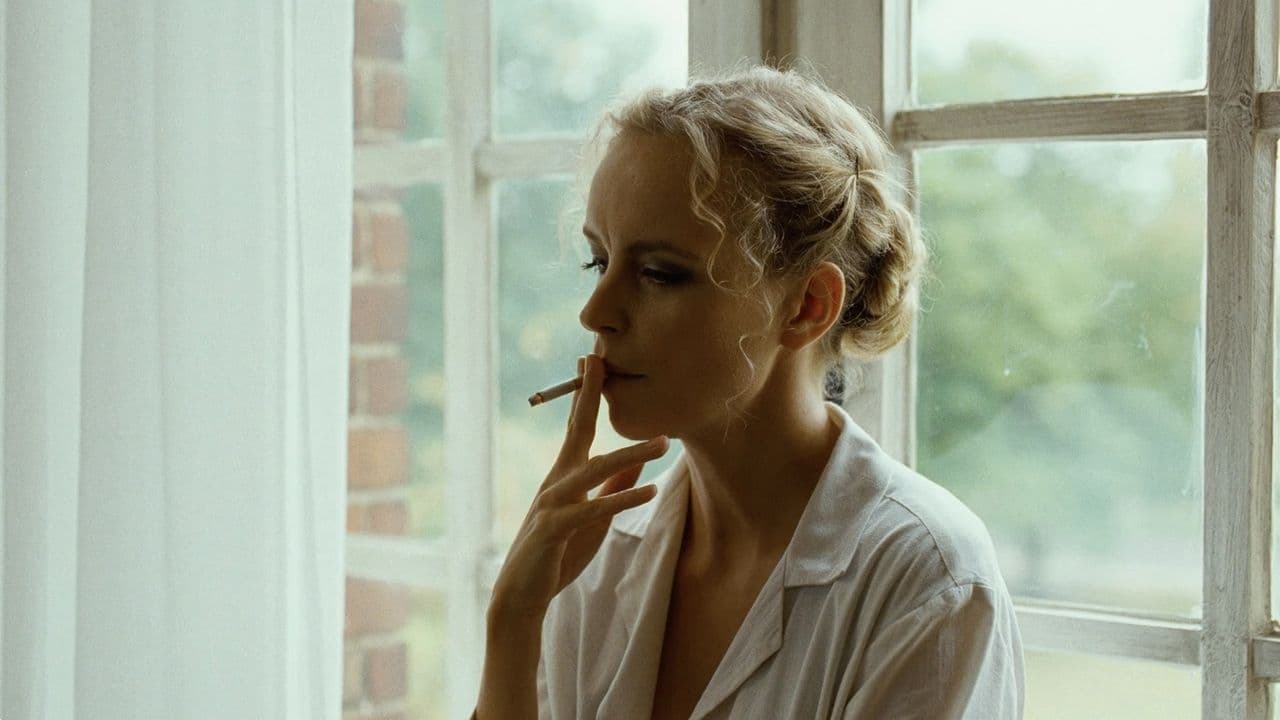



It's fun, it's light, [but] it has a hard time when its tries to get heavy.
View MoreWhile it doesn't offer any answers, it both thrills and makes you think.
View MoreGreat example of an old-fashioned, pure-at-heart escapist event movie that doesn't pretend to be anything that it's not and has boat loads of fun being its own ludicrous self.
View MoreThe movie really just wants to entertain people.
This is a little gem of a film with the rarest touches and subtlety. Set in 1980, its protagonist, Barbara, is a physician sent to work in a clinic in the North of East Germany as a punishment for applying for exit visa to the West. She is being closely monitored by the Stasi (communist secret police) and reports on her are written from the hospital by a young head doctor. Having decided to escape East Germany to be with her lover in Denmark and quickly figuring out her superior André has been assigned to spy on her, Barbara is testy and cool to his advances, as she is overcome by bitterness to the regime that mistreats and humiliates her. But in time she discovers André is a strong, gentle, sincere character and that his dedication to medicine matches her own. She becomes torn between her desire to leave and the suddenly erupting strong feelings for him. The acting by the mercurial Nina Hoss (as Barbara) quiet, confident Ronald Zehrfeld (as André) is exceptional and some of their interactions show brilliant edge and deep reading of character. Well worth seeing how this plays out.
View MoreIt's 1980 East Germany. Dr Barbara Wolff (Nina Hoss) is new in the backwaters hospital. She has isolated herself from all her colleagues. The secret police Stasi is keeping track of her for applying for an exit visa and she lost her job at a prestigious hospital in East Berlin. She can trust nobody even the chief doctor Reiser. There is a patient named Stella that has developed an attachment to Barbara. She is pregnant and is desperate to flee to the West.I love the idea of this story. This should be a tense thriller of paranoia and fear. Instead this is slow moving, reserved emotionally and quiet. The long takes, medium shots, and the stoic performances strip the movie of its tension. The fact that she is holding her feelings so tightly may be fitting for the story. It doesn't always allow people to feel her fears. It's a specific way to do this story and it works on that level.
View MoreI visited Eastern Europe, Berlin, Prague, and Budapest, in March 1990. At that time, the Berlin Wall had already been fallen down, but Germany had not reunited yet.People could freely come and go over the borders between East and West Germany. I went through Checkpoint Charlie to East Berlin, and I visited retro-future TV tower and saw Ladas running on street.In a night train from Berlin to Prague, I asked a passenger who sat next to me if Germany would reunite in a year, and he answered that he didn't believe it would happen so early. In fact, Germany reunited in October 1990.Although I actually visited East Berlin, now, it is hardly for me to believe that the half of Germany was a communist state just twenty-three years ago.--------------------"Barbara" is a German film about people living in East Germany in 1980. Barbara is a female doctor, who was watched by the secret police.It is one of the greatest German films that I have ever seen. There is no exaggeration and omission in this film. Every element in it is necessary, and I couldn't find that any things were unnecessary.This film is very quiet, because there is no background music. That makes audience concentrated in every tiny sound. Barbara was always nervous about the secret police, so she got surprised when the doorbell started to ring, and the audience also got really surprised with the sound of the doorbell, and fully understood her emotion.Nina Hoss, as Barbara, was also great and attractive. She didn't overplay at all, but accurately expressed how Barbara felt in her mind. After seeing her performance, most actors and actress became to look unnatural.This film is a quiet, simple, and elegant. If you love films, I strongly recommend you to see it.
View MoreIt's a challenging task to depict a bygone era which hasn't yet passed into history, but is a living memory in the minds of many. Distant events may be easily interpreted at will, because no spectator can expect a minute reconstruction of a reality past. Adaptations of recent events, however, fall under close scrutiny of those who were actually there, and any attempt to 'tell the whole story' will invariably meet with criticism from those who feel left out of the picture, or who remember differently. It is therefore the best solution for the film maker to focus on atmosphere rather than events, and a simple story rather than a complex rendition of society as a whole. And that's what director/ screenwriter Christian Petzold does: he tells the story of a doctor, displaced from the capital to the province for an application to leave the country, and confronting an atmosphere of distrust while preparing her escape to the West. This routine of hostility is a little ameliorated by the interest of a male colleague, who may however be an assigned informer, and the friendship to a pregnant patient, who apparently escaped from a juvenile offenders camp only to be recaptured.What makes me consider this film as far superior to the much lauded, Oscar-winning 'The Lives of Others' is that it does not sacrifice atmosphere to film making conventions. For instance, there is no music, because there was no music. 'The Lives of Others' tormented any actual witness of the times it described with a sappy soundtrack. It also did not correspond to my recollections of East Germany because it limited the supervision of ordinary citizens to the Stasi ('State Security') and its collaborators. It did point out that this supervision was omnipresent, but it created a division between good and evil which was slowly eroded from the evil side's end. 'Barbara', however, focuses on the way ordinary citizens, not intellectuals, were treated, and the fact that virtually everyone collaborated in the supervision of the individual, whether they were working with the Stasi or not. Barbara is fully aware of her situation, and tries to make friends with her colleague/informer André Reiser to win him over to her side, while at the same time not giving anything away about herself. Reiser, on the other hand, tries to gain her trust as a person, because he needs her competence at work and may be romantically interested in her, while at the same time fulfilling his obligations to report on her.This constant game of hide and seek illustrates what Socialism was really like - a permanent grey zone in which you had to measure your steps carefully and no clear distinctions between good and evil existed, as 'The Lives of Others' would have you believe; and the young patient side characters show that quite a few cracked under this immense pressure. By focusing on one woman's story, director Petzold delivers an accurate portrait of the realities of life at that time: it did not matter whether you were good at your job or not, and being too good made you automatically suspicious, while being lazy made you the target of accusations of boycotting society; it was dangerous to open up to colleagues, because they would almost certainly be inquired about what you said, but at the same time it was dangerous to distance yourself, because then you'd be suspected of having something to hide. Everything was tactics, nothing was spontaneous, everybody wanted to get out, but chastised those who actually tried. This authenticity has probably prompted this film's selection as the German candidate for the foreign language Oscar 2013, but it may also have hampered its chances to win the Golden Bear upon its premiere at the Berlin Film Festival, where Petzold won the director's prize though. Realism makes for an accurate portrayal of the recent past, but for those who have not been there, 'Barbara' may be a bit too stiff and gloomy, because it does not compromise its authenticity to the expectations of (Western) audiences.
View More